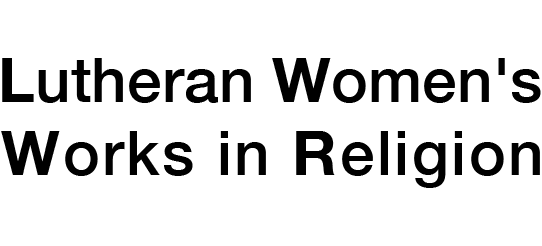Category: Ecclesiology and Ecclesial Life
BOOK CHAPTERS
Gracia Grindal "Free and Living Congregations: How Can Congregational Freedom be Assured?" In Church Roots. ed. Charles Lutz. Minneapolis: Augsburg Fortress 1985 : 185-206BOOKS
One-Minute Devotions for the Church Musician., In One-Minute Devotions for the Church Musician. St Louis: MorningStar 2010 2011 2012Reflections for the church musician on the scriptures designated for the Revised Common Lectionary. Available for all three lectionary cycles. Useful as choir devotionals or for the musician’s personal preparation.
A collaborative writing project of the professors of Christian Education at the then ten Lutheran Seminaries of the Evangelical Lutheran Church in America and the Evangelical Lutheran Church in Canada, this book shows how education and evangelism, often pitted against one another, must go together. To carry out goals of evangelical outreach, education is essential, and education which is alive needs to spring forth in a vital sharing of the Good News.
The Reformation concept of the ―Priesthood of all Believers‖ has yet to be fully realized. These Lutheran scholars, a lay man and a clergy woman, provide a Trinitarian approach to the question of ―What in the world is God doing?‖ Using a variety of styles and methods, they help people reflect on and be empowered for ministry in daily life.
Professor Everist invited 25 diverse women engaged in the full range of parish ministry to show how they lead and serve, using the themes of “Trusting God,” “Liberating Christians,” “Living Vocation,” and “Nurturing Community.” The theological questions arise from the contextual realities as the women exercise ministerial leadership in the public world.
Rarely are books about conflict written by women theologians. This book provides a theological core for seven responses to conflict: avoidance, confrontation, competition, control, accommodation, compromise and collaboration, showing positive as well as negative uses of each. Part One examines images, types and patterns of conflict and helps people look at their personal histories of conflict and potential leadership roles.
Two Lutheran theologians, male and female, model in their writing and over 15 years of team teaching, a leadership style which builds trust, nurtures community and empowers congregations. The book covers topics from ecclesial foundations, to relational ethics and assets-based ministry. It explores power and partnership, congregational systems, spirituality, stress and the creative use of time, all towards honoring people and growth in wisdom.
Republished Eugene, OR: Wipf and Stock 2016. This compact book of stories from the author‘s visits to congregations across the entire country invites people to reflect upon the nature of the Church and how congregations are called and equipped for God‘s mission. She unfolds Lutheran theology inductively so that readers, having been drawn into compelling adventure, come back home and see people with new eyes.
The authors, the faculty of Wartburg Theological Seminary, demonstrated the unity of the church in its diversity. A peer among them, Professor Everist encouraged authors in content and process to deepen their differences, not hide them, thus modeling how the church can be the body of Christ in the midst of its greatest challenges. As difficult as it is, we need one another.

